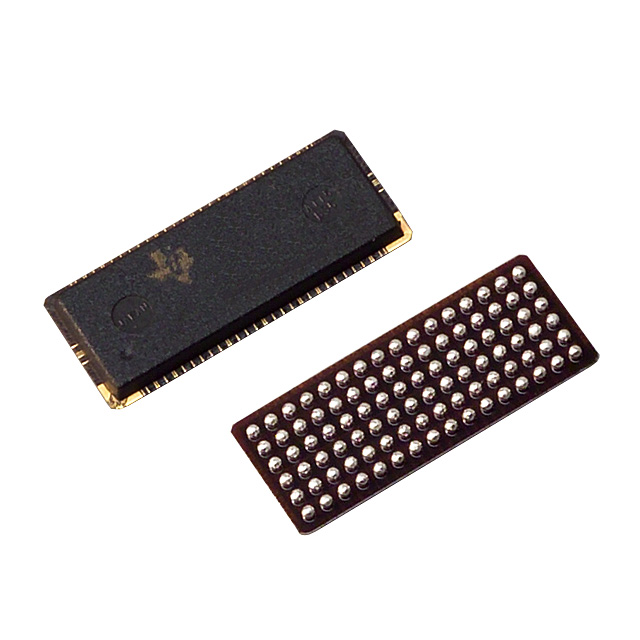SN74AUC32374ZKER
Manufacturer No:
SN74AUC32374ZKER
Manufacturer:
Description:
IC FF D-TYPE QUAD 8BIT 96PBGA
Datasheet:
Delivery:





Payment:




In Stock : 0
Please send RFQ , we will respond immediately.









SN74AUC32374ZKER Specifications
-
TypeParameter
-
Input Capacitance3 pF
-
Clock Frequency250 MHz
-
Package / Case96-LFBGA
-
Supplier Device Package96-PBGA MICROSTAR (13.6x5.6)
-
Mounting TypeSurface Mount
-
Operating Temperature-40°C ~ 85°C (TA)
-
Current - Quiescent (Iq)40 µA
-
Voltage - Supply0.8V ~ 2.7V
-
Current - Output High, Low9mA, 9mA
-
Trigger TypePositive Edge
-
Max Propagation Delay @ V, Max CL2.2ns @ 2.5V, 30pF
-
Number of Bits per Element8
-
Number of Elements4
-
Output TypeTri-State, Non-Inverted
-
TypeD-Type
-
FunctionStandard
-
PackagingTape & Reel (TR)
-
Product StatusObsolete
-
Series74AUC
The SN74AUC32374ZKER is a specific model of integrated circuit chip manufactured by Texas Instruments. It is a 32-bit D-type flip-flop with 3-state outputs. Here are some advantages and application scenarios of this chip:Advantages: 1. High-speed operation: The SN74AUC32374ZKER chip operates at a high speed, making it suitable for applications that require fast data transfer and processing. 2. Low power consumption: It is designed to consume low power, making it energy-efficient and suitable for battery-powered devices or applications where power efficiency is crucial. 3. 3-state outputs: The chip has 3-state outputs, which means it can be used to interface with multiple devices or bus systems without causing conflicts or data corruption. 4. Wide operating voltage range: It can operate within a wide voltage range, typically from 0.8V to 3.6V, making it compatible with various power supply levels.Application scenarios: 1. Data storage and transfer: The SN74AUC32374ZKER chip can be used in applications where data needs to be stored and transferred, such as memory systems, data buffers, or data communication interfaces. 2. Bus systems: It can be used in bus systems where multiple devices need to share data or communicate with each other. The 3-state outputs allow multiple devices to be connected to the same bus without interfering with each other. 3. Microcontrollers and processors: The chip can be used in microcontroller or processor-based systems to store and manipulate data. It can act as a register or latch for storing temporary data during processing. 4. Industrial automation: The high-speed operation and low power consumption make it suitable for industrial automation applications, such as control systems, robotics, or sensor interfaces.It is important to note that the specific advantages and application scenarios may vary depending on the requirements and design of the overall system. It is recommended to refer to the datasheet and consult with the manufacturer for detailed information and specific use cases.
SN74AUC32374ZKER Relevant information







